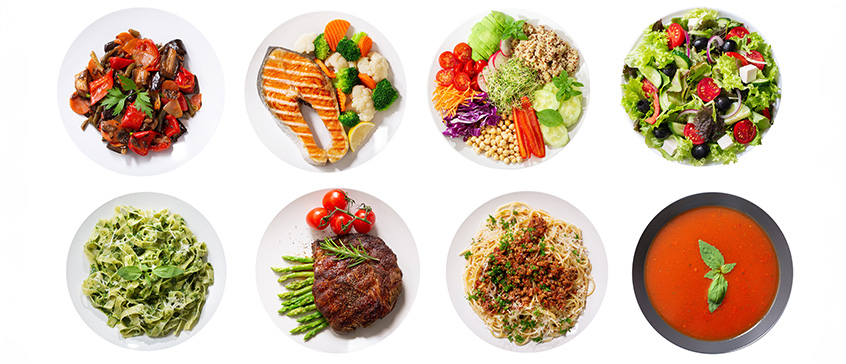Home / Humanities, Social Sciences and Law / A deep dive into meat and plant-based diets
A deep dive into meat and plant-based diets

By instructor Dr. Ali Kenefick
In recent years, the conversation around our food choices has become more urgent and complex. Whether it’s for health reasons, environmental concerns or ethical beliefs, more and more people are reconsidering what they put on their plates. But with so much conflicting information out there, how do we make sense of it all?
Carnivores vs. Herbivores
Is a vegetarian or plant-based diet really better for our bodies and the planet? And what about the traditional meat-based diet that many of us grew up with? These are the kinds of questions we’ll be exploring in the upcoming course, Carnivores vs. Herbivores: Rethinking Meat and Plant-Based Diets.
How different diets affect the planet
One of the most pressing issues we’ll tackle is the environmental impact of our food systems. It’s no secret that industrial meat production is a significant contributor to greenhouse gas emissions, deforestation and water use. But does switching to a plant-based diet truly solve these problems? What about the environmental costs of large-scale agriculture for plant-based foods, from monocropping to pesticide use? By examining both sides of the equation, this course will help you develop a more nuanced understanding of how different diets affect the planet.
Health impacts of your diet
We’ll also dive into the health implications of eating meat vs. going plant-based. Nutrition is at the heart of this debate, with advocates on both sides claiming their diet is superior for overall well-being. But the truth, as usual, is more complicated. We’ll break down the research on how each diet impacts physical health—everything from heart disease and weight management to nutrient deficiencies and protein intake. Whether you’re a lifelong carnivore or a committed vegetarian, this course will give you the tools to assess what’s best for your body based on science, not just trends.
How do you prioritize your food choices?
The ethical side of the debate is where things get deeply personal. For many, the decision to eat—or not eat— meat is tied to concerns about animal welfare. Industrial farming practices have been widely criticized for their treatment of animals, but is plant-based eating automatically more ethical? What about the labour conditions for workers in industrial farming, or the ways large corporations are shaping the plant-based food market? As we explore these questions, the course will challenge you to think critically about where your food comes from and what values you prioritize in your food choices.
Perhaps one of the most exciting aspects of this course is the opportunity to engage in meaningful discussions with others who may hold different views. Our goal isn’t to push one dietary philosophy over another, but to foster a space where participants can examine the complexities and trade-offs of both. By the end, you’ll walk away not only with new knowledge but with a more informed perspective on how your choices align with your values—whether you stick to your current diet or decide to make a change.
The food we eat is a reflection of who we are and the world we want to live in. If you’ve ever wondered how your food choices affect not just your health, but the planet and the people who live on it, this course will help you explore these important questions.

Carnivores vs. Herbivores: Rethinking Meat and Plant-Based Diets
Join us for Carnivores vs. Herbivores, which runs from Feb. 11 to 25, 2025 and start rethinking what’s really at stake when it comes to what’s on your plate.
About the instructor
With a doctorate in design sociology focusing on the intersections of food systems and design, Ali Kenefick is an experienced educator and interdisciplinary food studies expert. With a passion for exploring the intersection of food, culture and society, and with over two decades of experience as a designer and educator, Ali brings a vibrant, creative and unique perspective that combines theory and practice, making complex topics accessible and engaging. She is dedicated to fostering thought-provoking discussions that encourage learners to view food through new, critical lenses.
- Posted January 20, 2025
Visit Registration
2nd Floor | Continuing Studies Building University of Victoria Campus 3800 Finnerty Road | Victoria BC | CanadaTel 250-472-4747 | Email uvcsreg@uvic.ca
2026 © Continuing Studies at UVic
Legal Notices |
Sitemap

